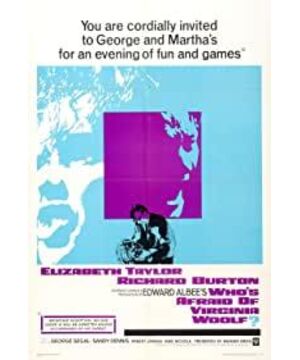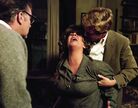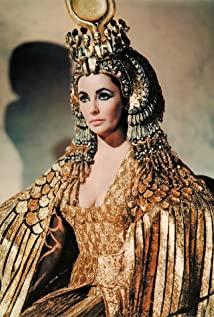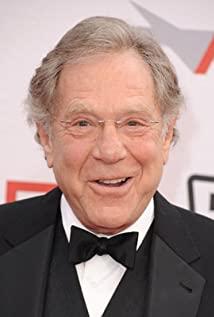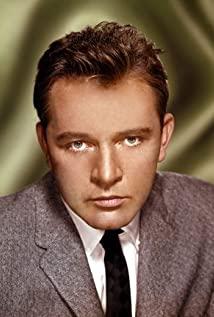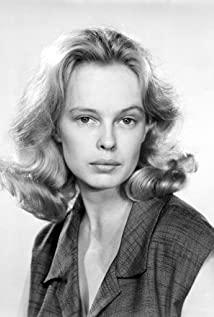Mike Nichols was recently awarded the AFI Lifetime Achievement Award. As his big-screen debut, this film seems to be far from the recognition of "The Graduate" to domestic audiences (in the work of actress Elizabeth Taylor) The same is true in the chronology). In this film adapted from the classic stage play of the same name (created by Edward Albee), the most famous segment is the three of Martha, Nick and Honey laughing at George’s "past embarrassment" on the sofa in the living room, while George Leaving the room to the storage room took out a shotgun and pulled the trigger at his wife's back-unexpectedly, this terrifying scene, but with the muzzle stretched out and opened a handful of elegant style His parasol instantly turned into a roar of laughter. Compared with the gentle and long-lasting confusion in "The Graduate", this film has a completely different taste, like a "dance of death" staged by a blade. The time span of the whole story is just 4-5 hours in the second half of the night, but the endless, sparkling quarrels and curses, attacks and revenges between the four protagonists are almost exhausting.
Soon after the film started, when the women walked up the stairs and the men were in the same room, as the guest Nick asked if the male host George had any children, George gave a meaningful answer: "You need to find out by yourself". In fact, from the beginning of entering the film, the audience is like this ambitious young man who is led into a ghostly and gloomy labyrinth. The quiet and soothing scene at the beginning of the film is just a beautiful appearance. After opening the door, the audience is oncoming. It's a mess of the whole house—what a dump! Remember how April told Frank? "People have never forgotten the truth, they are just getting more and more willing to lie." With the development and advancement of the plot, we gradually find that we have difficulty distinguishing which thing is true and which is false. All kinds of lies and illusions are flooded in this raging family party, sealing up the truth one after another, and even the young couple themselves have hidden secrets behind them.
The biggest difference between the film adaptation and Edward Albee's original drama is that the second act "Witch's Feast"-the most bloody scene is moved out of the Georges' residence and moved to a roadside ballroom. As the director expected, this appropriate change not only extends the stage space of the film, but also adds a lot of drama and freshness. Before the beginning of the story of this scene, the film first let us enjoy a crazy solo dance by Honey-this magical stroke came from the idea of actor Sandy Dennis, and to a large extent it made the audience more aware of the fact that this has been in the war of three people. A character outside (Dennis won the Oscar for Best Supporting Actress for this role). At the same time, I also noticed that in addition to the four protagonists, the only other two "actors" in the film came to the scene at a special time—they are the bosses of this newly added scene "Dance Hall", although they are The passerby, who had only a few seconds of scenes, produced very interesting effects and broke the atmosphere that was about to be swallowed up by violence in a timely manner.
Like most successful stage play video adaptations, the excellent photography and editing of this film left a deep impression on people. In the history of American film, this film has created many firsts-but also left a "last time": the last film to win the Oscar for Best Black and White Photography. Of course, like many excellent black-and-white films today, this film is shot with a color camera and then processed into black-and-white tones. Haskell Wexler's photography outlines an absurd, mysterious and ghostly atmosphere for the film, and each rapid movement of the lens is often accompanied by intense emotional shifts. What impressed me most was the group of shots after the four people left the ballroom, from the ultimate split between Martha and George to driving the young couple away alone, and finally fell on the lonely close-up of George, with the upper right corner. The flickering neon lights in the distance create a strong sense of alienation and loneliness, as well as the anger of the characters through the images full of horror.
Even in so many literary works about marriage (such as the "Road to Revolution" mentioned at the beginning of the article), such complicated and absurd depictions of contradictions like George and Martha in this film are very rare-so Bloody love, such an incompatible hatred. In the end, it seems difficult to tell whether they love each other more or hate each other more. Of course, this drama is not just the story of their marriage. Perhaps the audience needs to have a better understanding of the oppressive and suffocating American social background in the 1960s and the various metaphors buried in the film from time to time to be able to understand more deeply. The deep meaning of this play.
Interestingly, when the most absurd secret was finally revealed and the domineering Martha was completely defeated, we could not observe any familiar pleasure of revenge. As the title "Exorcism" of this scene in the original play shows, this ultimate game suddenly brings a little redemption-but the story outside the play makes us fall into pessimism: Richard Burton, the star of the film They divorced and remarried with Elizabeth Taylor, and they ended in tragedy.
http://www.pub8.net/review/whos-afraid-of-virginia-woolf
View more about Who's Afraid of Virginia Woolf? reviews


